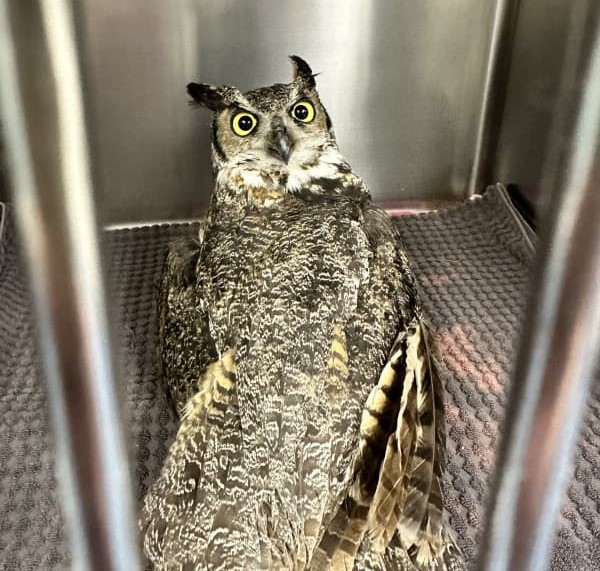While the weather may not agree, the wild animals of Illinois seem to have decided that springtime is here! Our clinic is once again filling with orphaned infant and juvenile animals in need of care. At the same time, our student volunteers are coming to the end of the school year and have been studying for their last rounds of exams. So how do you split the care of these orphans between those already crunched for time? Hard work and organization!

Each team rotates through signing up for orphan and pager shifts in order to ensure no one group is overburdened with caring for babies or triaging new patients as they come in. Orphan feeding shifts start with checking the orphan board, which contains information about what litters are present, what type of food they need and how often they need it. While young squirrels and opossums may look alike as young mammals, they require very different diets for optimal growth and nutrition.

Before feeding an orphan, volunteers make sure it is warm and hydrated enough to be able to tolerate the calorie-rich meal. Most mammals require tube-feeding until they open their eyes, which is a difficult skill that helps our volunteers better prepare for life as clinicians.


As if all of this weren’t enough, volunteers also must be cognizant of which species have the likelyhood of imprinting. For instance, the team caring for this group of mallard ducklings must wear face masks during handling to keep the young animals from growing to believe that humans are their source of food. These critters are particularly messy and also need to be given access to water during treatments in order to develop strength for their eventual release.
The orphans in our clinic get the best care humans can offer, but it is still nothing like what their mothers can do for them in the wild and that is why we are strong advocates for leaving babies alone unless there is reasonable doubt they have actually been orphaned. We would not be able to do what we do if it weren’t for the incredible teamwork between our student volunteers, managers, and veterinarians! And don’t forget about the Orphan Baby Shower coming up this weekend, where members of the public have an opportunity to see orphans being fed in person!



